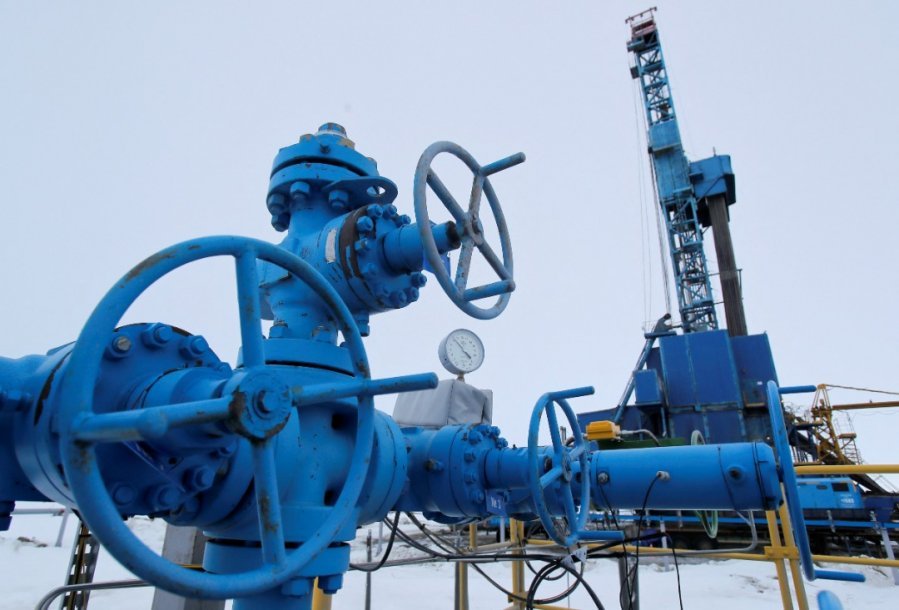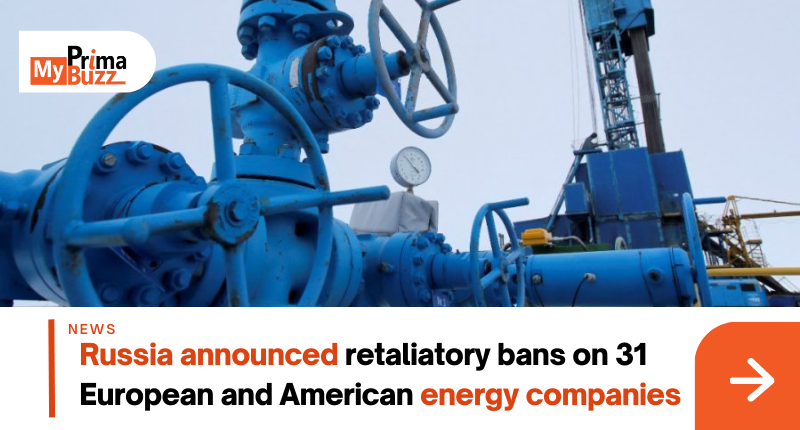On Wednesday, local time, the government of the Russian Federation approved the list of legal entities that impose retaliatory sanctions on 31 European and American energy companies. The list of government orders and sanctions signed by Prime Minister was published on the official portal of Russian legal information on the same day.

Drilling rigs in the Bovanenkovo gas field on the Yamal Peninsula in the Russian Arctic, a gas processing facility operated by Gazprom.
Photo credit: Reuters archive photo
According to the document, according to the decree signed by the Russian president on May 3, the Russian government has identified and approved the list of foreign-related legal entities involved in the implementation of special economic measures.
The list includes European countries such as Germany, the United Kingdom, France, Austria, Switzerland, Belgium, Italy, the Czech Republic, Slovakia, Bulgaria, Romania, Poland, as well as 31 companies that supply and sell Russian gas in the United States and Singapore.
Gazprom's former European subsidiary, brokers and operators of underground gas storage facilities are also on the sanctions list, and Gazprom withdrew from the company's business in April.
The document stipulates that the Russian side is prohibited from conducting transactions with listed enterprises, including transactions in which these enterprises act as beneficiaries; transactions in payments and securities conducted by these enterprises as participants or beneficiaries; transactions in which they enter Russian ports under their names or charter vessels under the authorization of or for their benefit.
On May 3, Russian President Vladimir Putin signed a decree prohibiting retaliatory special economic measures against “unfriendly acts” of some countries and international organizations, prohibiting Russian government agencies at all levels, as well as all institutions, legal persons and natural persons subject to the laws of the Russian Federation, from performing contracts, obligations or financial transactions with foreign legal persons and individuals involved in Russian measures. The decree also requires the Russian government to determine within 10 days a list of countries and organizations involved in the measures, as well as individuals.
The lure of Russian gas
Russian gas is cost-effective and easy to transport, and is the key to replacing coal-fired and nuclear energy, especially in Germany. Gazprom supplies a third of the gas consumed by the EU. Without this gas, the EU economy could fall into recession. Russian gas supply valves affect the supply of north sea gas fields controlled by Britain and the Netherlands.
After the war in Ukraine, the European Union wants to reduce its natural gas imports from Russia by two-thirds by the end of the year.
One idea pushed by Moscow is to demand payments for natural gas in rubles to avoid Western sanctions on the use of dollars and other currencies for settlement.
Can Asia save Putin from possible Western energy sanctions?
The answer is not simple or absolute, but there are some key factors. The United States, the United Kingdom and Australia have clarified the energy embargo under the framework of Western sanctions, and the European Union is considering including it in sanctions measures. Russia's gas pipelines are designed to supply Europe, never for the Asian market.
An analyst at the Wilson Center said: “If the EU pushes forward with the energy embargo on Russia, I don't think Asian countries can absorb the excess supply generated.” Russia could be forced to cut its oil production by 30 percent. ”

